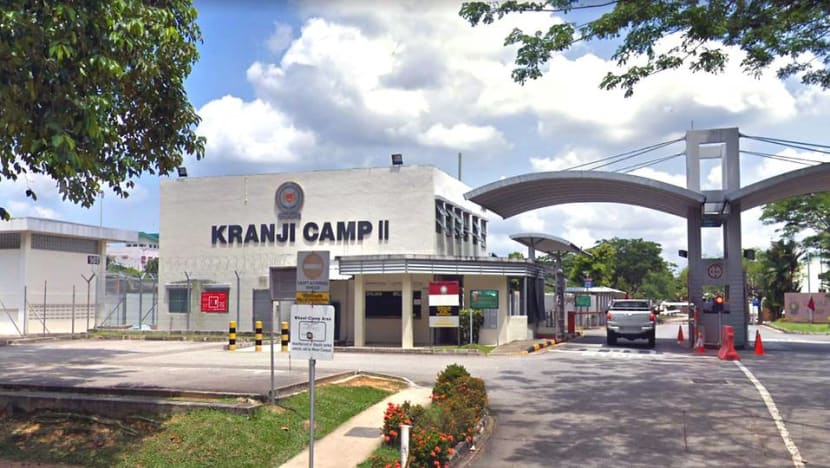All army camps to be integrated with smart technologies as part of SAF’s digital transformation efforts

A Google Street View image of Kranji Camp II.
SINGAPORE: All army camps will soon be integrated with smart technologies to enhance administrative processes and free up more time for training.
Among the smart technologies to be implemented is a mobile application which will allow servicemen to have access to camp, unit and training information on the go.
They will also be able to return their arms and stores respectively by scanning them at a kiosk.
This comes after trials conducted by the Singapore Army under its Smart Camp project, which piloted smart technologies for its cookhouse, store, armskote, workshop and a smartphone app.
In a media release on Thursday (Jun 30), the Ministry of Defence (MINDEF) said the technologies will be implemented in Stagmont Camp in 2023, Clementi and Kranji Camps in 2024, and the rest of the army camps from 2025 onwards.
“The optimisation of these necessary daily routines will enhance the experience for servicemen,” said MINDEF.
A platform that will replace the current NS Portal and consolidate all NS-related digital services and transactions will also be progressively rolled out from the second half of this year.
“OneNS can anticipate and determine the unique needs of each serviceman and personalise digital services to ensure easy access to relevant information and services in a useful and timely manner for the serviceman,” said MINDEF.
DRIVING DIGITAL TRANSFORMATION
Amid the uncertain and complex security environment, efforts to drive digital transformation within the SAF are under way.
The SAF will appoint a chief digitalisation officer to lead and drive this transformation which will include the formulation of the SAF’s digital strategy, establish priorities for digital resourcing to support the transformation as well as determine the metrics for milestones in the digitalisation of the SAF.
The chief digitalisation officer will report to the chief of defence force, said MINDEF.
IMPROVING TRAINING
Data analytics as well as virtual and mixed reality are among the technologies the SAF will use to improve its training.
The Singapore Navy will use data analytics to provide more targeted feedback for learners. From 2025, trainers will be able to give them an analysis of their performance at simulation centres so that they can learn better and more effectively in areas such as warfare, navigation, bridge operations or mission planning.
For the Singapore Army, a one-stop portal that will deliver end-to-end training management services such as work planning, resource allocation and training record management will be rolled out progressively across the whole army from this year.
The system employs data analytics so that service personnel are better able to optimise planning considerations such as training resource allocation to achieve specific training outcomes with less administrative time required.
Meanwhile, the Republic of Singapore Air Force (RSAF) uses technologies such as virtual and mixed reality to enhance training effectiveness and efficiency.
This includes the SPYDER missile loading training simulator which recreates the missile loading process of the SPYDER system in an immersive and spatially accurate virtual environment.
The simulator allows trainees to drill their procedures during contingency scenarios, which are difficult to replicate in real life, and enables training regardless of weather conditions or timing in the day. This in turn enhances training efficiency and safety, said MINDEF.














